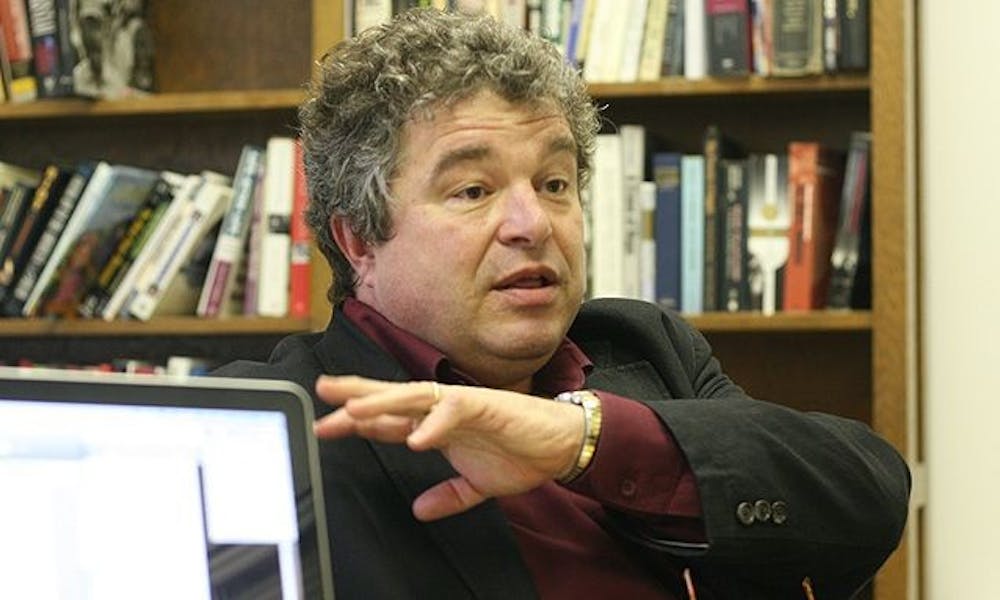Tim Tyson, senior research scholar at the Center for Documentary Studies, received the 2018 Robert F. Kennedy Book Award Tuesday night.
Tyson’s winning book "The Blood of Emmett Till" was released in 2017 and focuses on the 1955 lynching of 14-year-old Emmett Till—an event influential in launching the civil rights movement. The award is given each year by Robert F. Kennedy Human Rights.
“What lifts the RFK Book Award to its singular stature is that these authors impart crucial truths with compelling clarity that finds an audience and makes a difference,” Tyson wrote in an email. “The list of past winners includes some of the writers and scholars that I most admire. To imagine my name on it is hard to do, and I was astonished, as well as delighted and grateful, when Ethel Kennedy called to tell me the news.”
This was not the first national recognition for "The Blood of Emmett Till." The book was on the long list for the 2017 National Book Award and was listed as a notable book by both the Washington Post and the New York Times.
The book goes beyond recounting the lynching and subsequent murder trial to dig into the events that led up to it. Till was lynched after allegedly flirting with a white woman in a store and whistling at her when she walked outside to get a gun from her car. The woman, Carolyn Bryant, then told her husband and his half-brother about the incident, and the two were tried for murdering the 14-year-old boy and throwing his body in a river. They were found "not guilty" by an all-white jury.
One of the most noteworthy aspects of Tyson’s book came from his 2008 interview with Bryant—reportedly the only one she’s given since the time of the killing—in which she admitted to fabricating part of her testimony from the trial and said that nothing Till did “could ever justify what happened to him.”
“America has narrated the 1955 lynching of this 14-year-old black boy in Mississippi as a Southern horror movie, set in some distant and exotic Dixie, starring Redneck Frankenstein,” Tyson wrote. “This tale of monsters leaves us feeling morally superior because few Americans then or now approve of the lynching of children. The truth is that the lynching of Emmett Till was an inevitable by-product of American history and the social system in which this murder was embedded.”
Previously, Tyson earned recognition for his 2004 book "Blood Done Sign My Name," an autobiographical account of the murder in Tyson’s North Carolina hometown.
"Blood Done Sign My Name" follows the story of Henry Marrow, a black man in Oxford, N.C., who was killed in 1970 as the forces of the Black Power movement and the white backlash combined. The book was adapted into a movie in 2010.
Tyson cited a 1960s speech Robert F. Kennedy delivered in South Africa as a motivation behind his work. In that speech, Kennedy said that whenever someone stands up for a belief or fights against an injustice, the action leads to "a tiny ripple of hope, and crossing each other from a million different centers of energy and daring, those ripples build a current which can sweep down the mightiest walls of oppression and resistance."
“That is the hope underneath any work that I am trying to do,” Tyson wrote.
Get The Chronicle straight to your inbox
Sign up for our weekly newsletter. Cancel at any time.
Bre is a senior political science major from South Carolina, and she is the current video editor, special projects editor and recruitment chair for The Chronicle. She is also an associate photography editor and an investigations editor. Previously, she was the editor-in-chief and local and national news department head.
Twitter: @brebradham
Email: breanna.bradham@duke.edu

